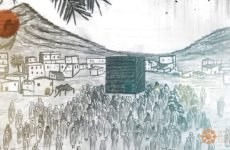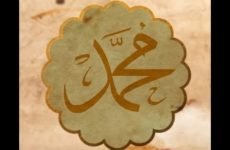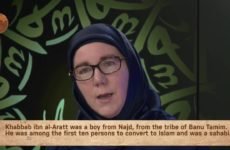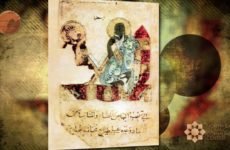History of Islam – Pre-revelation: Arabian Peninsula and ‘Jahiliyya’ before Islam Last
Hello everyone! As salamu alaykum! My name is A.G. I’m here to present the early life history of PM, pbuh, until the beginning of the revelation period.
We have recorded 12 videos on this subject, and I tried to cover the most important incidents, just before the arrival of Islam.In this video, I will particularly talk about:
The Arabian Peninsula before Islam, and also the significance of the city of Mecca.
First of all, I want to answer why Mecca was significant to the people in Pre-Islamic Arabia. The city of Mecca, was sacred to many people, because of the Ka’ba. And the Ka’ba is the sanctuary built by P.Ib and his son Is. by God’s order. However, although P.Ib preached about the oneness of God, which is monotheism; later on Arabs had replaced Ibrahim’s monotheism with polytheism.
This means that pre-Islamic Arabs went away from the idea of worshipping one God; instead, they adopted the idea of worshipping idols besides God.
So, Ka’ba, which was built as the house of only 1 God, later on became a house of idols, like a pantheon. It was reported that the Ka’ba housed 360 idols, before the arrival of Islam.
Meccan Arabs in Pre-Islamic Arabia believed in Allah as well. They believed that Allah created the world. Yet, at the same time, Allah was associated with partners as mediators in order to reach Him. They were saying:
“We are worshipping these idols so that they bring us closer to Allah!”
Also, each tribe had its own idol. For instance, the tribe of Quraysh worshipped the 3 most famous idols that were called Uzza, Manat, and Lat. These 3 idols were considered the daughters of God.
Of course, there were other significant gods or goddesses for Arabs as well. for instance, Hubal was one of them, which was respected much by the Arabs. So, one may ask why the Arabs respected these idols so much, and how idolatry began and spread in Mecca, while most Arabs were monotheist in the beginning?
Acc. To historical records, idolatry began in the 3rd cen. C.E in Mecca. The story goes like this: The Ka’ba and Mecca were under the control of Khuzaa tribe at that time. A person, called Amr ibn Luhay, who was one of the leaders of this tribe, went to Damascus for trade. He saw there some people worshipping idols. He asked them what they were doing. They answered him that they wanted help from these idols; for instance, they asked rain from them and then they got the rain.
Amr wanted an idol from them to bring to Mecca, and they gave him the idol called Hubal. When he returned to Mecca, he erected the idol in the courtyard of Ka’ba and invited people to worship it. Out of ignorance, the people of Mecca began to worship that idol. Later on, each family had their own idol, and they brought them to the Ka’ba. Then, idolatry quickly spread throughout Arabia, and became the leading belief of the people in that region.
The ironic part is that, sometimes they would make their idols from flour, and take these idols with them before they travel. When they got hungry during travel, they would cut their gods into pieces and eat them. When they were asked why they do that, they would answer:
“We are following in the steps of our ancestors.”
And this was their only excuse.
Here is the question: Were all the pre-Islamic Arabs polytheist? No. A majority of Arabs in Mecca were polytheists; however, there were few Meccans, who rejected idol worship and followed the religion of Ib. These people were called Hanif, which literally means pure and clean in Arabic. It also refers to the people who incline towards the truth. So the people who followed the religion of Ib. were called Hanif, because the Qur’an calls Ib. Hanif in Ch. 3, Ver. 67. Allah says:
“Ib. was a Hanif and Muslim; and he was not of the polytheists.”
Also, these people abstained from any type of idolatry. They declared that these idols would not be able to harm or benefit them. They also ate only the animals which were slaughtered in the name of Allah.
Both of P. M’s parents, Amina and Abdullah, were Hanif as well.
Let’s talk about the society.. Arabs had a tribal society, and there was not a central authority; therefore, they did not have common social rules. Each tribe had its own rules and regulations. Also, each tribe was claiming to be superior to the others. As a result, the tribes in Arabia were often fighting with each other. And sometimes, one tribe would raid another tribe and plunder its goods, camels, women and children. Later on, the injured tribe would do the same to the other side as revenge. So anybody could do whatever they wanted, as long as they were able to.
Meccan Arabs themselves called the Pre-Islamic period as the Jahiliyya, meaning Age of Ignorance, or Age of Immorality. People who lived in that age described themselves as being uncivilized; people ate the corpse; the powerful oppressed the weak, and bloodshed was common and normal.
As for the sacred building Ka’ba, as I said before, it was filled with idols. Arabs changed the ritual of hajj (pilgrimage) that had been performed since the time of P.Ib. What they changed is that, people would whirl around the Ka’ba without any clothes on, and also they clapped their hands during the ritual. They thought that it was not proper to circle around the Ka’ba with the clothes on, in which they had sinned. Because of that, some people were selling brand-new clothes near the Ka’ba for this purpose. In that case, they would either buy brand new clothes that had no sin in them, or they would circle around the Ka’ba naked, if they could not afford to buy new ones.
How about women in Pre-Islamic Arabia? We know that women were treated badly in the Arabian Peninsula, as well as in the other parts of the World. Because women were considered as a 2nd class entity. Moreover, some people were ashamed of having a female newborn, because of the fear of poverty or dishonor. They were afraid that when they grew up, they would damage their honor; or they would be a financial burden on their parents in the future.
Those who could not carry the burden of this shame, would end the lives of their own daughters. Maybe one of the most horrible common practice of Meccan Arabs in the age of ignorance was to bury their baby girls alive.
The Qur’an also points this case in a verse: In Ch.16, verses 58,59, Allah says:
“when the news of the birth of a female child is brought to any of them, his face becomes dark, and he is filled with grief! He hides himself from the people. Should he keep it in humiliation or bury it in the ground?”
There is a story about a man who lived in the age of ignorance and then became a companion of P.M pbuh. One day this man narrated one of his stories from the age of ignorance to the Prophet. He said to him:
“O messenger of God! I had a daughter. One day I told her mother to dress her, because I was taking her to her uncle. My poor wife knew what this meant, but could do nothing but obey and weep.
She dressed the girl, who was very happy that she was going to see her uncle! I brought her near a well, and told her to look down into it. While she was looking into the well, I kicked her into it. I heard her scream, saying: “Daddy, Daddy! While she was rolling down!”
After hearing this story, the prophet wept until his beard was completely wet. He actually let the people, who lived in the age of ignorance, convey their stories, so that they realize what they were like before, and how Allah helped them change their lives into a better way.
As a result, people were in need of a sun, that would enlighten them.
They were expecting a sun; so that darkness change into light; and ignorance change into knowledge. When humanity was in real need of guidance from God, God sent P.M to these people in this age. P.M, pbuh, brought the Pure, monotheistic faith back into the world. This is actually a blessing and compassion of God that we all must be thankful for. Otherwise, humanity may have still remained in darkness and ignorance.
























